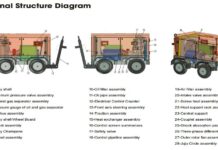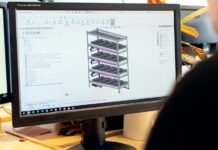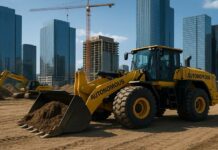The availability of your work pickup trucks and other construction vehicles is essential to the success of your building project. When your construction vehicle breaks down, the ability to remain efficient and on schedule is threatened.
When you are on a tight deadline, the last thing you need is for your pickup truck to slow down the entire project. Luckily, you can view pickups on a leasing broker’s site and get your next construction workhorse when you need it the most.
How can you prevent damaging your construction vehicle when you are on-site? Follow these practical tips to safeguard your car.
Don’t Overload your Truck
Overloading your vehicle because of client pressure or a delay in the delivery of your materials is a safety issue and can cause considerable damage to your vehicle. Overloading your pickup truck hinders the vehicle’s performance, places additional pressure on your engine, and should be avoided.
As a result of overloading the truck, the load-bearing ability is challenged, causing damage to various components, and the tyres usually bear the brunt of the burden.
Do Not Exceed the Maximum Towing Capacity
Construction sites need a wide range of equipment that needs to be towed on a daily basis. When towing larger equipment, it is crucial to understand the maximum towing capacity of your vehicle.
Always be aware of how much weight your truck can carry. While you can use add-ons to maximise the towing capabilities of your truck, exceeding the gross vehicle weight rating (GVWR) can cause irreversible damage to your vehicle.
Consult the Owners Handbook to view the vehicle’s loading capacity.
Routine Maintenance
When your work truck breaks down, it can quickly bring building sites to a grinding halt. Regular maintenance and repairs are essential to construction vehicles to keep them in tip-top shape.
-
Check the Fluid Levels
Checking your fluid levels is essential to your vehicle running smoothly, and this will ensure you save time and money on costly repairs in the long run. Checking the fluid levels of your work truck every 96,000 to 160,000 km.
-
Change the Engine Oil
One of the most critical fluids in your car is engine oil. Cooling and lubricant oil are essential to the performance of your engine. Without regularly changing and checking the fluid, the parts on your engine will wear out faster due to heat and friction.
-
Replace Brake Fluids
Most newer pickup truck models have braking systems that work with hydraulics. Brake fluid is transmitted every time you slow down or stop when you press the brake pedal. Always consult your owner’s handbook to check when the brake fluids need replacing.
-
Check the Tyres
When changing your oil, check your tyres as well. Construction sites are not the smoothest zones for your tyres, and keeping up with tyre maintenance is crucial for extending your wheels’ life. Always check the threads, make sure no nails are causing a slow puncture, and regularly check for any wear and tear when leaving the construction zone.
The tread wear pattern on your tyres can differ between the front and back tyres, or even between the sides of your tyre, depending on the vehicle’s alignment and usage. Keeping your tyres rotated will ensure that their tread wear is evenly balanced and will minimise noise and vibration.
-
Check Your Lights
Working lights are essential to any car on the road, and it is easy to forget them. At least once a month, ensure that your headlights are shining and working correctly and aligned. Make sure that your parking lights and turn signals are working too. Have a co-worker stand behind your construction vehicle and check that your brake lights are working correctly.
Be Aware of Visibility
Construction sites are filthy, and dirt, dust, and debris can affect your truck’s visibility. Make sure that the lights of your construction vehicle are not caked in dust, debris and dirt. As an added safety measure, ensure your lights are visible when driving at night.
Clean and clear any insects that have settled in the lenses of your car to restore complete visibility. Clean your windshields and windows so you have a clear line of sight on the road.
The Bottom Line
Routine maintenance and best practices can protect construction vehicles from irreversible and costly damage. Consider leasing a pickup truck should your vehicle be out of commission. You will not be out of work, and your construction project will not be inconvenienced.






























